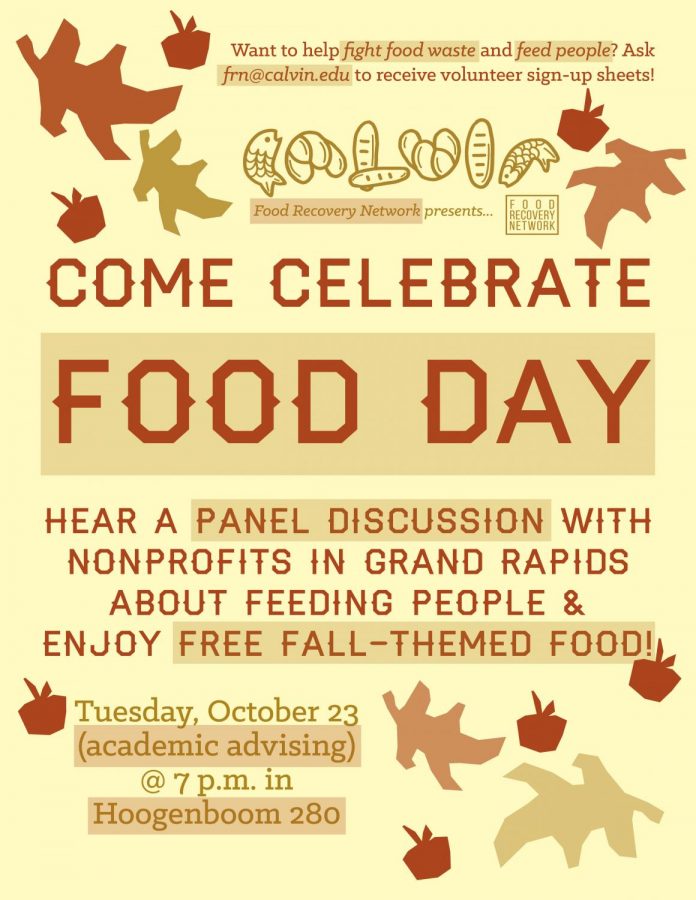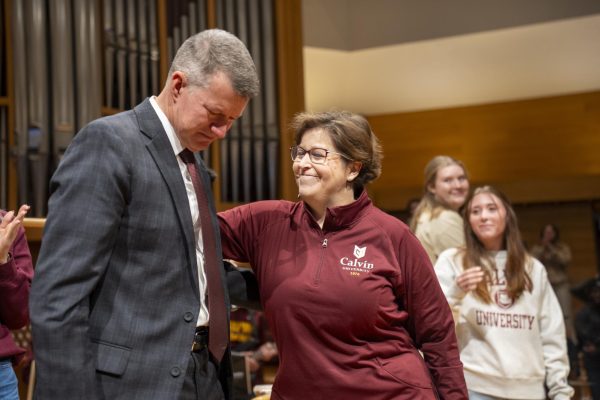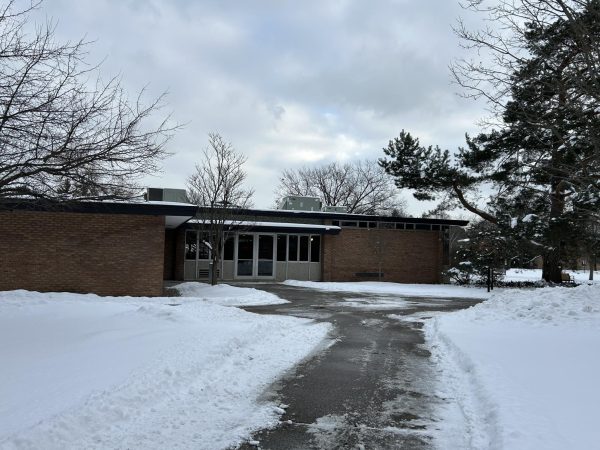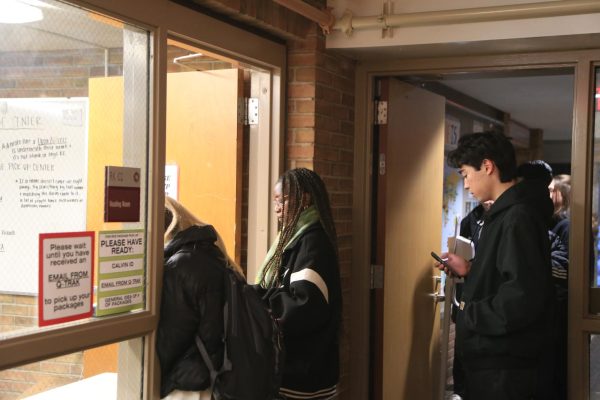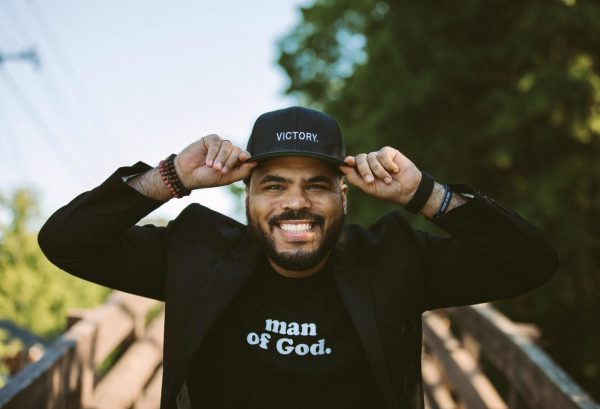Food Recovery Network hosts panel with nonprofits about food insecurity
The Calvin Food Recovery Network (FRN) invited four representatives from different nonprofits to participate in a panel discussion on Tuesday Oct. 23 around the issue of food insecurity and poverty.
Panelists for the event came from various nonprofits in Grand Rapids. Marie Joseph represented Safe Haven Ministries, an organization that fights domestic violence and provides safety and empowerment for women and children. Chelsea Totten came from South End Community Outreach Ministries (SECOM), a resource center that serves its surrounding communities in need of healthy living, education and economic opportunity. Pastor Mark Werkema and Reginald Lott came from Matthew’s House, a program that fights poverty and homelessness.
The FRN is a student organization that partners with these nonprofits to help them combat poverty and injustice. Sophomore Rylan Shewmaker, a student leader for FRN, explained their partnership: after meals, the dining halls have leftover food that has been prepared but is not eaten, and instead of composting it, the FRN “transports that food, that’s already been prepared and can be served to people, to these nonprofits.” Two needs are met in this exchange: waste is eliminated and the hungry are fed.
Food is an integral part of all the organizations that came to speak on Tuesday night. Many of the individuals and families these organizations serve are food-insecure, so providing that service gives them a sense of stability in this area.
Totten explained that SECOM works particularly to integrate healthy food into their organization, because “food really is medicine to a lot of people.”
Lott added that “the housing situation compounds the food situation,” so those who are homeless face an added level of difficulty because they do not always have the means to prepare, store or access food.
Some of the challenges these organizations face are transportation and volunteer needs. Totten and Joseph both shared that a common roadblock much of their demographic faces is when people, especially parents with many children, have trouble going to the programs and services that their organization provides because of a lack of transportation. Totten also expressed that “most of our volunteers are senior citizens,” and they are in need of more volunteers. Because of that deficiency, “we don’t make as big of an impact as we could.”
The discussion concluded with information on how Calvin students can get connected with these organizations through volunteer work, including joining FRN by contacting frn@calvin.edu.
Totten shared that “volunteer work was how I found out what I wanted to do with my life.” For SECOM and Matthew’s House, contacting their organizations or stopping by for a visit are good ways to get connected. Joseph shares that Safe Haven volunteers go through “very rewarding training programs.” For these organizations, volunteers do not need special qualifications. As Werkema put it, “the only requirement is that you’re breathing.”



